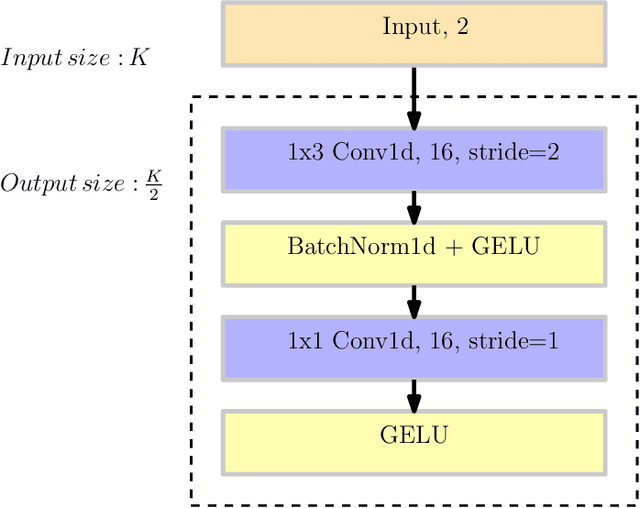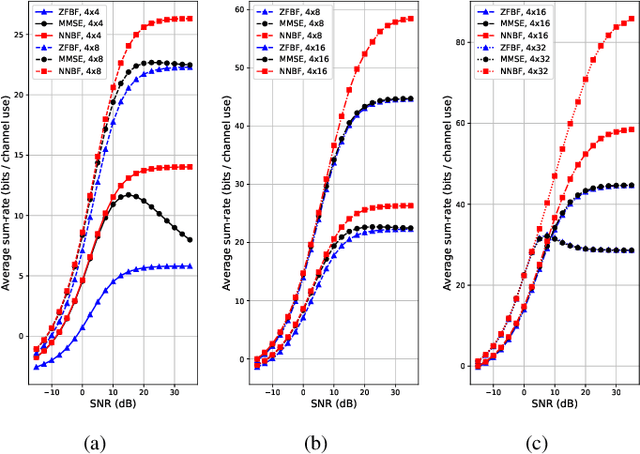Deep Learning Based Uplink Multi-User SIMO Beamforming Design
Paper and Code
Sep 28, 2023



The advancement of fifth generation (5G) wireless communication networks has created a greater demand for wireless resource management solutions that offer high data rates, extensive coverage, minimal latency and energy-efficient performance. Nonetheless, traditional approaches have shortcomings when it comes to computational complexity and their ability to adapt to dynamic conditions, creating a gap between theoretical analysis and the practical execution of algorithmic solutions for managing wireless resources. Deep learning-based techniques offer promising solutions for bridging this gap with their substantial representation capabilities. We propose a novel unsupervised deep learning framework, which is called NNBF, for the design of uplink receive multi-user single input multiple output (MU-SIMO) beamforming. The primary objective is to enhance the throughput by focusing on maximizing the sum-rate while also offering computationally efficient solution, in contrast to established conventional methods. We conduct experiments for several antenna configurations. Our experimental results demonstrate that NNBF exhibits superior performance compared to our baseline methods, namely, zero-forcing beamforming (ZFBF) and minimum mean square error (MMSE) equalizer. Additionally, NNBF is scalable to the number of single-antenna user equipments (UEs) while baseline methods have significant computational burden due to matrix pseudo-inverse operation.
 Add to Chrome
Add to Chrome Add to Firefox
Add to Firefox Add to Edge
Add to Edge